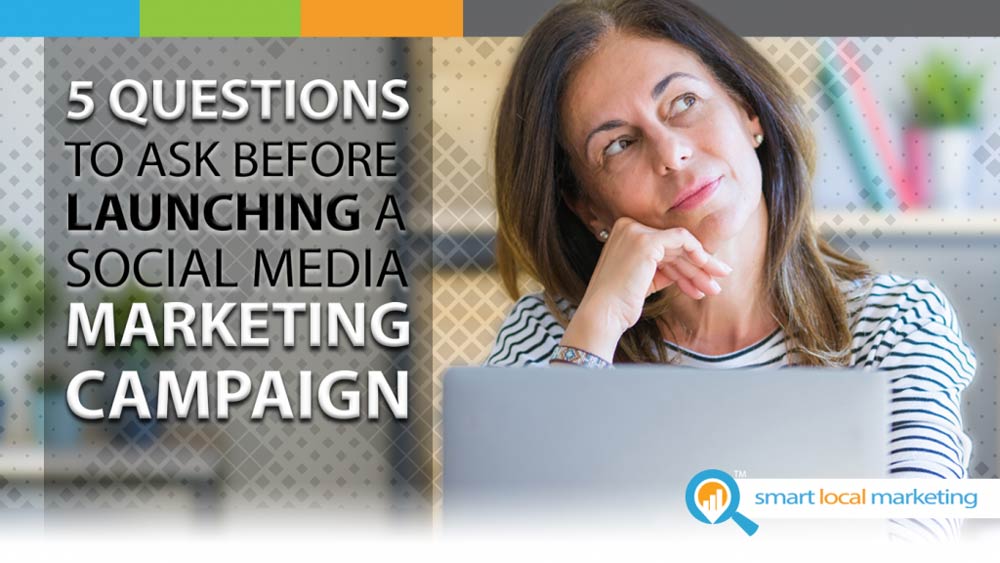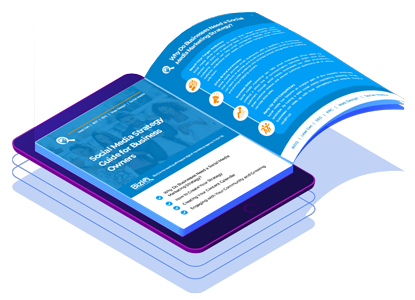Social media is one of the most effective marketing channels today. These social networks have grown from simple platforms through which people shared content with loved ones to powerful avenues that businesses can take advantage of to market their products and services.

Thanks to rapid globalization and advances in technology, the marketing landscape has changed drastically. Mobile devices are increasingly becoming commonplace, with a good number of those who own these gadgets using them to access the internet. Today, both international and local businesses rely on social media to spread their marketing messages and engage with customers. If you are keen on reaching a wider global audience, you should consider investing in social media marketing. However, to be successful with this type of marketing, you will need to familiarize yourself with the major social media outlets. This will ensure you choose the right strategies to help you achieve your marketing objectives.
Why is Social Media Marketing Important?
Social media marketing is a form of internet marketing that involves the use of social platforms to connect with your audience to build your brand, drive website traffic and increase sales. In essence, it involves creating and sharing relevant and meaningful content on various social media platforms. Currently, the major social media platforms are Facebook, Twitter, Instagram, YouTube, LinkedIn, Pinterest and Snapchat.
The Importance of Social Media Marketing
Social media should be an essential piece of your overall marketing strategy. Here are a few reasons why social media marketing is important.
Improved Brand Awareness
Most consumers tend to do business with brands that they recognize and can relate to. Social media makes for a stress-free and profitable way to increase your brand visibility and recognition. By increasing your visibility among potential customers and letting you reach a wider audience, these platforms can help you gain numerous new customers. The good news is that it is free to create a business profile on all the major social networks. With the right strategy and regular use of the platforms, you can build a wide online audience for your business in a short time.
Did you know…
71% of consumers who have had a positive experience with a brand on social media are likely to recommend that brand to friends and family. That’s some seriously powerful word-of-mouth marketing!
Cost-effective
Every business looks for ways to minimize costs and maximize profits while working towards the set goals. Compared to other forms of marketing, social media advertising makes it possible to reach your target audience in a cost-effective way. Creating an account on most social media platforms is free. In case you decide to use paid advertising on social media, you can start with a small budget. Starting small allows you to measure results and effectiveness before increasing your budget. In short, by investing a little money and time, you can increase your conversion rates and realize a decent return on investment.
Encourage Engagement
Today more than ever, it has become important for businesses to engage and interact with their customers. Engagement helps to build strong relationships with customers and allows you to understand them more intimately. By facilitating two-way communication with the target audience, customers can express their wishes and suggest ways through which you can improve your products. It also allows you to cater to their interests in an easier and faster manner. Communication and engagement through social media make it easy to win the attention of your target audience so you can convey your brand message.
Provide Support
Thanks to social media, the barriers that existed between companies and their customers have been broken down. Today, consumers can use social media to express their concerns, seek assistance, raise complaints and ask questions. Similarly, companies and businesses can provide the required support through social channels. When companies respond in good time, are helpful and listen to criticism, customers feel heard and valued. Prompt responses go a long way in helping to create a voice for your company and improving your brand image. Since customers are likely to work with a brand that is responsive, these platforms promote healthier customer satisfaction and help to build brand loyalty.
More Brand Authority
Customer satisfaction and brand loyalty play a major role in helping to make your business more powerful. However, to achieve this, you have to work on ensuring clear and effective communication between you and your customers. Your customers are likely to perceive your business positively if you post quality and relevant content on social media and reply to their comments promptly. Interacting with your customers regularly gives them a sense that your business cares about them. When happy customers post on social media about their positive experiences, they will be doing the advertising for you.
Did you know…
63% of customers expect brands to offer customer service through social media. How are you responding to customer concerns and questions on platforms like Facebook, Instagram, LinkedIn, and Twitter?
Increased Traffic
Social media helps to increase your website traffic, effectively increasing brand awareness and making your website more visible. Visibility increases your chances of getting new customers and improving your sales performance. Every time you share your content on social media, you will be giving users a reason to click through to your online site. Creating quality and relevant content that resonates with your audience will result in more inbound traffic. It will also be a demonstration of your brand integrity, validity and constancy. As such, quality content will not only enhance your SEO rankings but also present more conversion opportunities.
Personalized Messages
Relying on different social media tools and detailed customer insights allows you to deliver personalized messages to both existing and potential customers. Audience data promotes better targeting so that your marketing message has a greater impact and influences the purchase decisions of your target audience. By using the data as well as analytics, you will be in a better position to create personalized offers for your audience. With a proper social media strategy, you will align your social activity to a focused goal and realize clear results.
5 Questions to Ask Before Launching a Social Media Marketing Campaign
Before launching a social media marketing campaign, you should ask yourself several questions. This way, you will come up with the right strategies to help you reach your target audience. In the end, your marketing campaign is likely to be successful.
1. Who Is Your Audience?
If any marketing campaign is to be successful, you need to identify and understand your target audience. Identifying your audience involves taking time to look at issues such as the age, gender, location, purchase decisions and interests of your target customers. You should also establish if your audience is on social media and the specific platforms that they use regularly. This information will allow you to plan your marketing campaign better.
2. How Do You Want Your Brand to be Perceived?
How customers perceive your brand in relation to that of the competition is known as market positioning. Positioning plays a major role in determining whether the consumers will buy your product or service. With the powerful marketing channel that is social media, you can influence how customers perceive your brand through your social activity. However, you will have to make sure that your social activity and content are in line with your goals. As such, you will have to determine how you want your brand to be perceived.
3. What Kind of Content Will You Share?
Original, quality and relevant content are at the center of any social media marketing campaign. The kind of content you share will determine whether you grab the attention of your target audience and keep customers interested in what you are offering. With the importance attached to content, you should take time to decide the kind of content you will be sharing. The content you share will also go a long way in helping to give you more brand authority.
Did You Know…
Less than 30% of small businesses engage with social media followers multiple times per day, something that can be challenging and time-consuming for brands who manage their social media in-house.
4. What Social Platforms are You Going to Use?
Deciding on the ideal platform to use is important before launching a social media marketing campaign. Different social media platforms differ in various ways and will be effective for different forms of content. At the same time, the users of certain social media platforms will largely depend on age, location and income level. Your choice of social platform will depend on the audience you intend to reach. In the end, you should use the social networks that you are familiar with.
5. What Goals Do You Want to Achieve?
You may also want to think about the specific marketing goals you want to achieve. These may include connecting with customers, increasing brand awareness, driving traffic to your website, boosting brand engagement, building an online community and generating sales, among others. Your goals will help you choose the best social platforms and develop an effective strategy.










